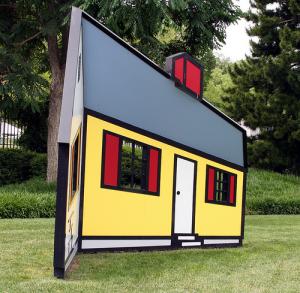
How are engineers perceived by different age groups in the U.S.?
This was the topic of a 2007 report from the Bemporad Baranowski Marketing Group (BBMG) commissioned by the National Academy of Engineering. The goal of the study was to develop and test the effectiveness of a small number of messages for enhancing public understanding of engineers and engineering.
The recommended messages were:
"Engineers make a world of difference."
"Engineers are creative problem-solvers."
"Engineers help shape the future."
"Engineering is essential to our health, happiness and safety."
The authors surveyed hundreds of children (9-11 years old), teens (14-17) and adults (including professional engineers). Here are some of their results:
- Engineers see themselves as "book-smart", "socially challenged" and "myopic" even though only 14% of the teens and 6% of the adults surveyed agree.
- According to a Harris interactive Poll in 2006, engineers fared 10th in the ranking of "most prestigious professions" The ranking included:

Do You Challenge Your Perceptions?
- Firefighter
- Doctor
- Nurse
- Scientist
- Teacher
- Military Officer
- Police Officer
- Priest
- Farmer
- Engineer
- Member of Congress
- Children and teens are concerned that engineers mostly sit behind the desk and do little field work. In the words of a teenager "Seems like a lot of engineers sit behind a desk and don't do much fieldwork...It's a desk job. I'd beat my head against the wall if I had to do that." However, both children and teens were positive about engineering when it was explained to them (e.g. they would be able to invent the next X-box).
- Fewer informed adults than teens think that engineers are inventors (33% vs. 41%), entrepreneurs (18% vs. 11%) and start new companies (7 vs. 14%).
More than $400 MM was spent in 2002 in the U.S. to promote engineering through such efforts as National Engineers Week and assorted local outreach groups. Most of the effort was geared towards getting children and teens interested in engineering to ensure a strong pipeline of talent. It appears that there is still much work to be done.
The prospect of working at a desk is apparently unpleasant to children and teenagers unless it is for a very worthy goal. It also seems that there is some disillusionment with engineers among adults, which points to a potential outreach target, adults.



Comments
Members of Congress # 11... hilarious. Very interesting, Leaelaf. Most young people (teenagers and below) don't have an appreciate for how complicated the world is. And we really can't blame them. Maybe that's a source of disinterest. Have you taken a look into the hood of a Town and Country lately - it's a mess! I'm not taking a stab at vans, especially studly gold ones that may or may not be in my driveway right now. I'm just pointing out that today's vehicles, just as with everything else today, are more complicated than when your parents were growing up. It's no wonder they don't know how today's products work! How could they possibly have clue how these things were manufactured, or what the people behind these products do on a daily basis to make them a reality?
There have been many of these perception surveys about engineers in all fields and the results are the same. Even very good math and science students are saying that they are not smart enough to be an engineer. The change in perception starts with the elementary school teachers and goes to the top of the political spectrum, just as was done in the early 60's when JFK promised to go to the moon by the end of the decade
Well written and interesting. Definitely broadened my perspective!